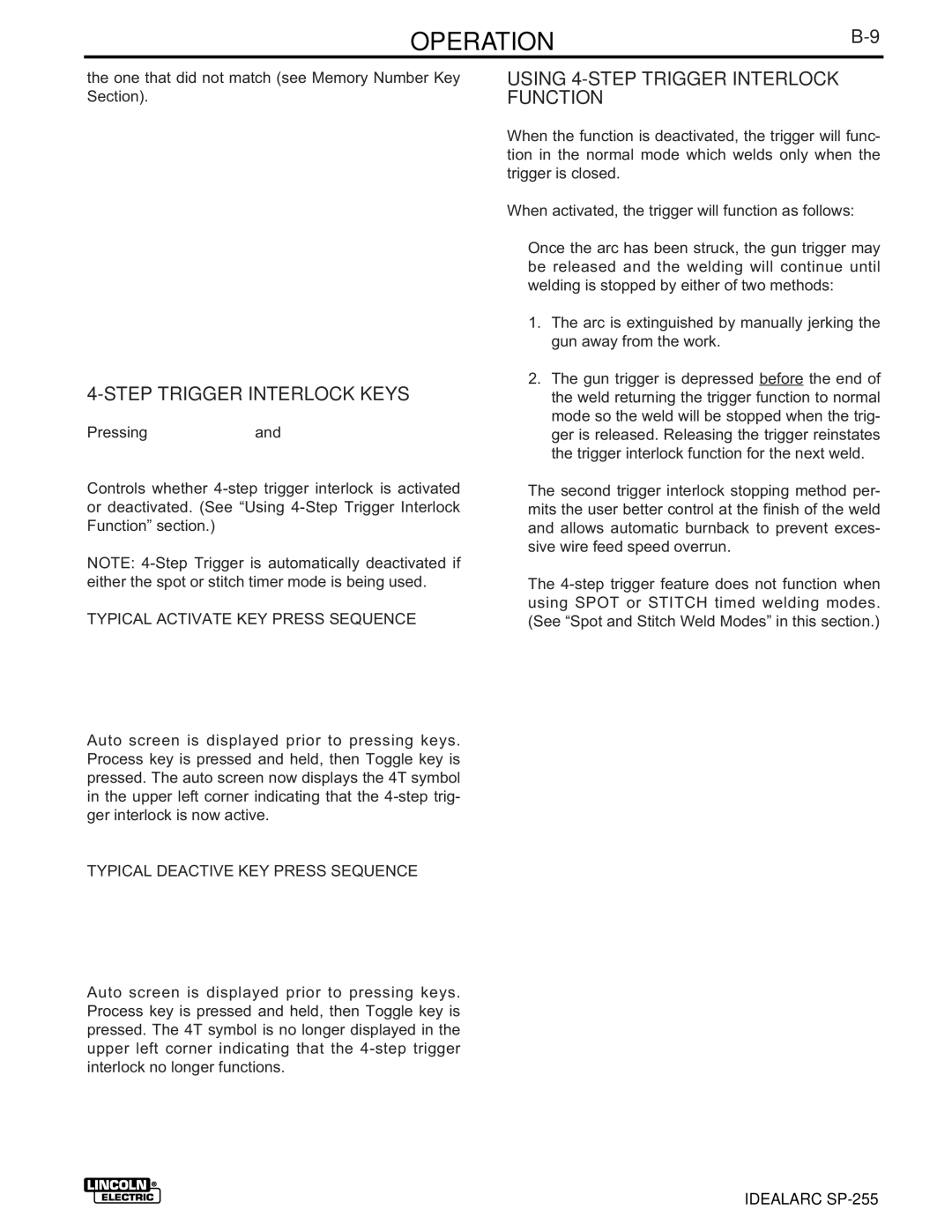
OPERATIONB-9
the one that did not match (see Memory Number Key Section).
4-STEP TRIGGER INTERLOCK KEYS
Pressingand
Controls whether
NOTE:
TYPICAL ACTIVATE KEY PRESS SEQUENCE
Auto screen is displayed prior to pressing keys. Process key is pressed and held, then Toggle key is pressed. The auto screen now displays the 4T symbol in the upper left corner indicating that the
TYPICAL DEACTIVE KEY PRESS SEQUENCE
Auto screen is displayed prior to pressing keys. Process key is pressed and held, then Toggle key is pressed. The 4T symbol is no longer displayed in the upper left corner indicating that the
USING 4-STEP TRIGGER INTERLOCK FUNCTION
When the function is deactivated, the trigger will func- tion in the normal mode which welds only when the trigger is closed.
When activated, the trigger will function as follows:
Once the arc has been struck, the gun trigger may be released and the welding will continue until welding is stopped by either of two methods:
1.The arc is extinguished by manually jerking the gun away from the work.
2.The gun trigger is depressed before the end of the weld returning the trigger function to normal mode so the weld will be stopped when the trig- ger is released. Releasing the trigger reinstates the trigger interlock function for the next weld.
The second trigger interlock stopping method per- mits the user better control at the finish of the weld and allows automatic burnback to prevent exces- sive wire feed speed overrun.
The
IDEALARC
